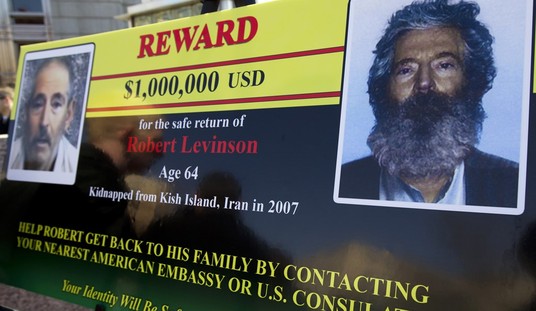=========
=========
Promoted from the diaries by streiff. Promotion does not imply endorsement.
=========
=========
There have been calls recently from certain groups and individuals, most notably led by two uranium mining companies who filed a petition regarding imposing tariffs and quotas on imported uranium in the name of national security. The U.S. Department of Commerce submitted its report known as the “section 232” probe to the White House on April 15th. While the DOC findings have not been made public, President Donald Trump would be well advised to not heed the call of Ur-Energy Inc., Energy Fuels Inc., and whoever its powerful supporters may be. Contrary to their claims, this is clearly motivated by profit, and not some sort of corporate patriotism and concern for the national security of the United States.
The two solutions that the uranium companies suggestion in their petition are the requirement that domestic uranium comprise 25% of all US uranium, a huge increase from the current numbers, and for federal agencies and utilities to buy U.S. uranium.
“We believe that President Trump will recognize the danger of relying on large and increasing levels uranium imports from Russia, China and our geopolitical rivals” stated Curtis Moore, a spokesman for Energy Fuels.
According to official statistics from 2017 provided by the U.S. Energy Information Administration, while only 7% of the uranium used for U.S. reactors is domestically produced, Canada and Australia combine for 55% of U.S. uranium purchases, with Russia at only 18%. Two countries with a long history as reliable U.S. allies comprise the majority of the uranium that we count on for our national needs. China does not even register as a statistical blip on the radar. The doomsday scenario painted by alarmists on this issue simply do not reflect the actual statistics.
Conversely, those involved with nuclear power generation are opposed to measures that lead to tariffs and quotas, as the nuclear power industry struggles already, and these increased costs could cause even more reactors to be forced to shut down. Nuclear reactors account for 20% of U.S. electric power, with uranium being 20% of their total costs to operate. The almost certain solution in this instance is that the consumer would have to pay more for these plants to continue to operate. This would negatively impact tens of millions of people financially.
“It is likely that if the tariffs are enacted, it would drive up the price of uranium,” said Shawn Flaherty, a spokesman for the South Texas Project Electric Generating Station, a nuclear plant located in Texas.
If the President were to listen to these suggestions, he would be helping one industry. The rest of the country would suffer by doing immense damage to an energy source which Americans should be concentrating more, and not less resources on.
Independent nuclear experts have reiterated that the US has large existing stockpiles of uranium that it can rely on. As of 2018, there were 574.5 metric tons of highly enriched uranium in our possession according to the International Panel on Fissile Materials. To put that in to perspective, this is what that sort of uranium reserve can afford a nation with a military force as large and powerful as the U.S. In terms of literal national security use, a 2015 Department of Energy study stated that we would need new fuel sources for reactors on naval ships sometime around 2060. This is far from an imminent threat when it comes to making sure that our military forces are more than prepared for the far foreseeable future.
From a political perspective, giving in to this irrational petition could be disastrous. 31 US states rely on nuclear power to some extent, including a number of significant swing states which President Trump won by extremely slim margins. Combined, these states add up to a lot of electoral votes. Two critical states that could be essential to a victory path are Virginia and Pennsylvania, which go well above the national average of 20% nuclear energy, and depend on it for 36% and 34% of their power respectively. President Trump managed to take the electoral college without Virginia last time around, but Pennsylvania is part of the rust belt, and those voters will be necessary to assemble the same winning coalition a second time around. They will likely not respond positively to a significant part of their energy industry being threatened by rising costs related to tariffs.
While this proposal might benefit states like Wyoming, where uranium mining occurs, far more Americans would be negatively affected by this proposal. If President Trump seeks to build a stronger U.S. In terms of its energy policy, then he should simply be encouraging more nuclear energy production, rather than approving a plan to benefit a few at the expense of many. Americans should not be fooled on this issue. The national security risk exists with imposing tariffs and quotas on uranium, not with refusing to do so. This should not be political or ideological in any way. This is common sense based on actual facts and statistics. From an economic, military, and political perspective, this petition is nothing less than unnecessary and utterly irresponsible.
AJ Bruno is a conservative political consultant, writer, podcast host, and activist. He served as New Hampshire State Director for Michele Bachmann’s presidential campaign, in addition to working on an array of other campaigns at all levels.













Join the conversation as a VIP Member